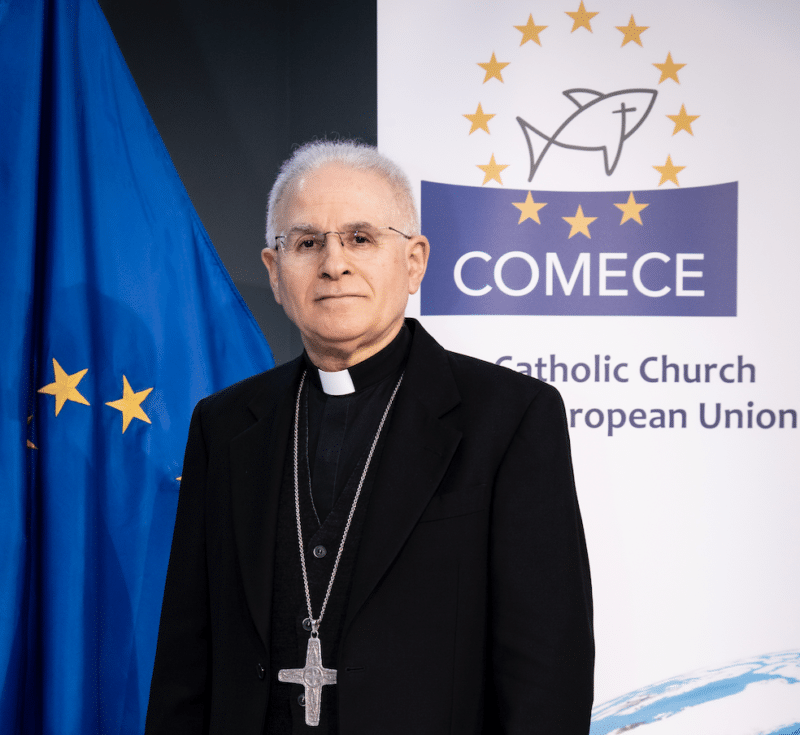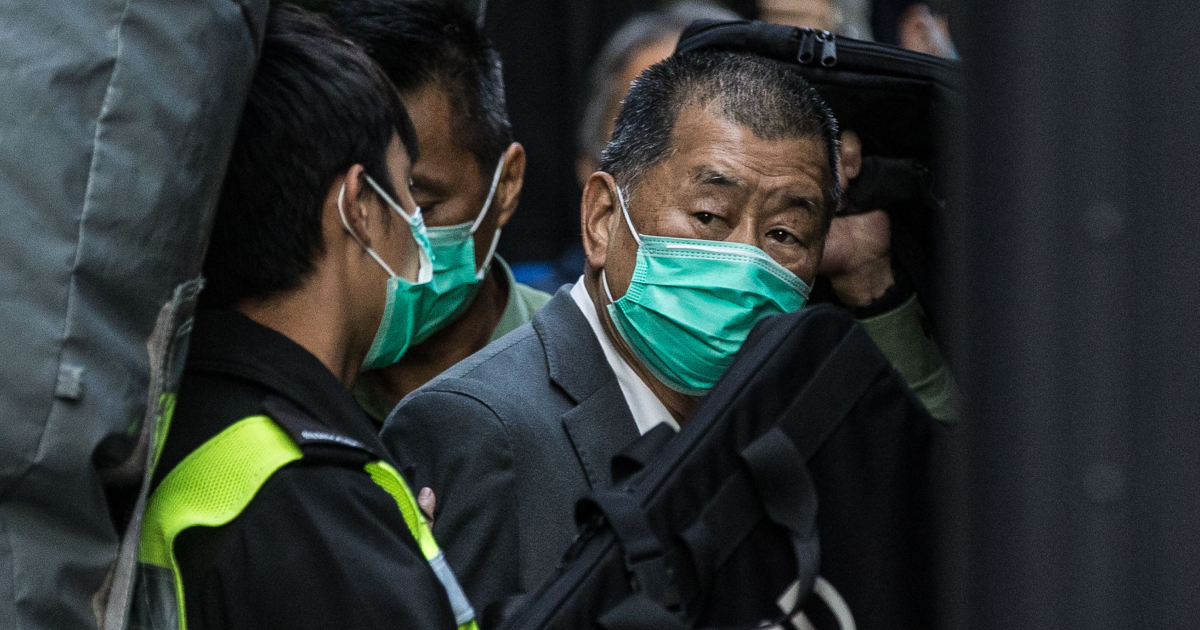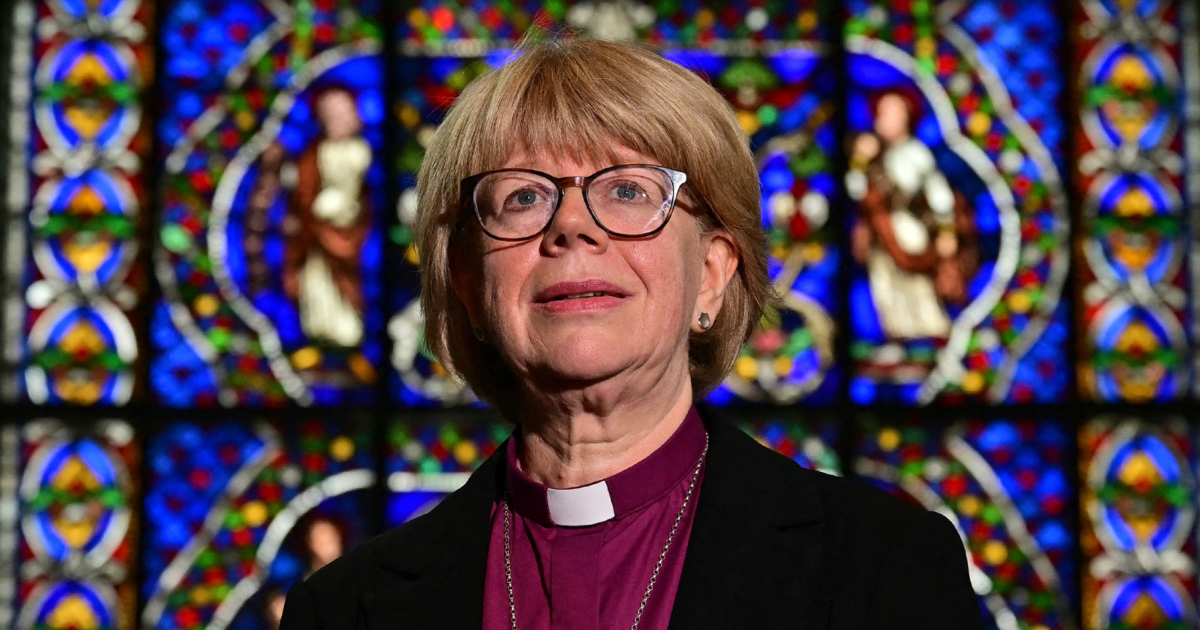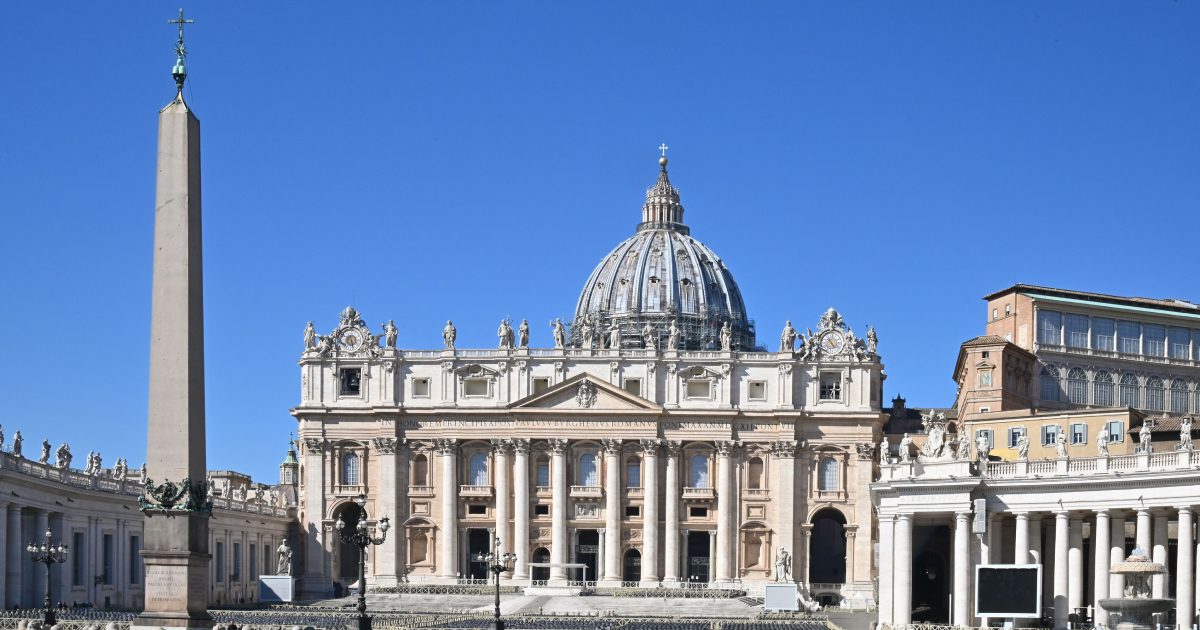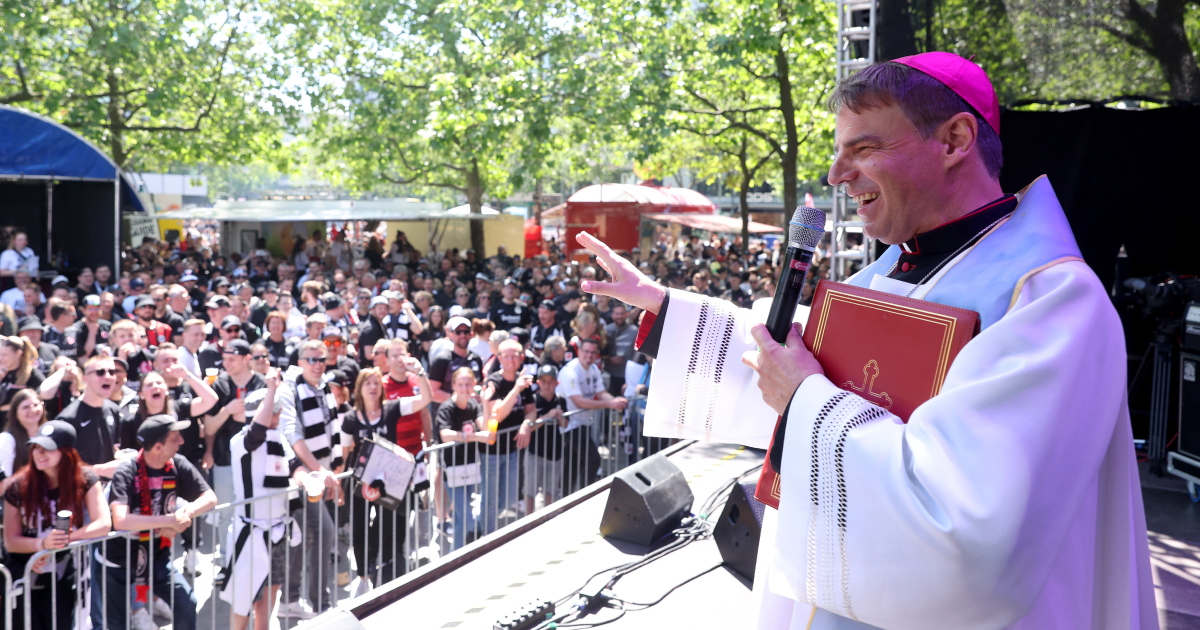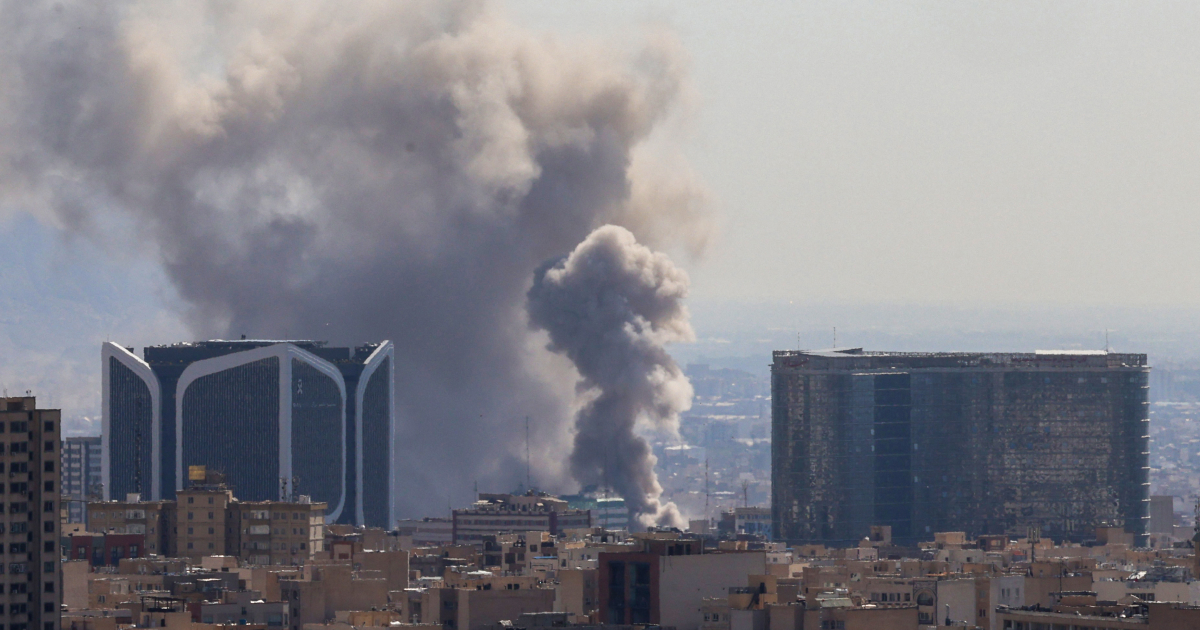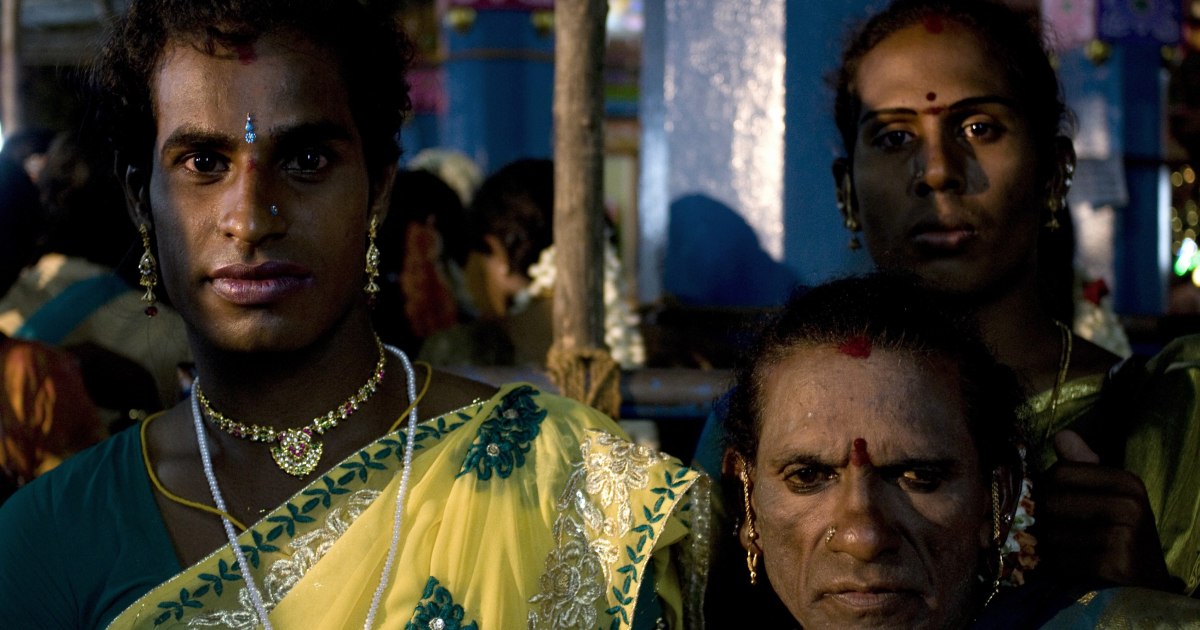The president of the Commission of the Bishops’ Conferences of the European Union (COMECE) is urging the EU to take further action over the crisis spiralling out of control in the Democratic Republic of Congo (DRC).
While welcoming the EU’s recent €60 million humanitarian aid package and the roadmap to regional peace proposed by the Catholic and Protestant Churches, Italian Bishop Mariano Crociata, COMECE president, is calling for stronger efforts to ensure the protection of civilians and their access to humanitarian aid. He also urges local authorities and the international community “to do everything possible to resolve the conflict by peaceful means".
“The involvement of foreign armies and militias, in particular Rwanda’s alleged support for the M23, constitutes a serious violation of international law,” Mgr. Crociata said on 12 February, while calling on the EU and the whole international community to address the burgeoning crisis.
“The EU and the international community must put pressure on these actors to cease their support for the M23, to negotiate in good faith, to respect the territorial integrity and sovereignty of the DRC, halting the exploitation of its natural resources,” said Mgr. Crociata, who is also Bishop of the Diocese of Latina-Terracina-Sezze-Priverno since 19 November 2013.
The COMECE president called also for “greater transparency in mining practices that fuel conflict, including the enforcement of due diligence frameworks on supply chains linked to Congolese minerals (e.g. cobalt, coltan, and gold)".
The European Parliament on 13 February called on the EU to freeze direct budget support for Rwanda until it breaks links with ethnic-Tutsi-led M23 rebels currently waging war in the DRC, and for the EU to suspend a Memorandum of Understanding on resource management, trade and economic development, until Rwanda ends its support for the rebels.
MEPs condemned the rebel occupation of Goma and other territories in the eastern part of the DRC, calling it “an unacceptable breach of the DRC’s sovereignty and territorial integrity". They denounced what they described as “indiscriminate attacks involving explosive weapons as well as unlawful killing, rape, and other apparent war crimes in populated areas of North Kivu by all parties", and deplored the use of means including “forced labour, forced recruitment, and other abusive practices, by M23 with the support of Rwanda’s military, and by the Congolese Armed Forces".
The European Parliament is also calling on Rwanda to allow humanitarian access to areas of the DRC in which the rebels have gained ground. The European Union approved a €60 million humanitarian aid package for the DRC in late January.
Fierce fighting between government forces and M23 rebels in the DRC has led to a horrific humanitarian crisis, with thousands of people killed and more than a half million people displaced in the most recent round of fighting alone.
M23 rebels – who take their name from the so-called March 23 Movement that has waged war in the country since 2012, when military forces turned against the DRC government, citing poor conditions in the army and the government's unwillingness to implement the 23 March 2009 peace deal – recently seized Goma, the capital of the North Kivu province in eastern DRC near the border with Rwanda. Catholic relief agencies have reported dire conditions and rampant sexual violence.
Rebel fighters are now continuing their advance into South Kivu, in defiance of regional leaders’ calls for a ceasefire.
Humanitarian relief efforts have been further frustrated by the interruption of US funding ordered by the Trump administration, which has halted all funding through the US Agency for International Development, USAID, reportsCrux.
The DRC is immensely rich in natural resources including rare earth and other minerals used in advanced electronics, metallurgy, and manufacturing. Illegal mining, corruption, child labor, extreme poverty and systemic inequality have plagued the DRC for decades.
Tens of thousands of children – some of them as young as six – work their entire lives in the mines, often as slaves and sometimes receiving less than $1 for a backbreaking day of work in lethally toxic conditions.
“Economic interests must not compromise the EU’s commitment to human dignity, international law and justice”, Mgr. Crociata affirmed. He also assured the bishops of DRC of COMECE’s continued prayers and support for a just and lasting peace.
Photo: Displaced people search for space in a truck as they return to their hometown of Kitshanga in Goma, Democratic Republic of Congo, 11 February 2025. Representatives for M23, which recently gained control of Goma and the surrounding area, recently gave a 72-hour ultimatum for people to leave IDP sites in the city. (Photo by Hugh Kinsella Cunningham/Getty Images.)
The president of the Commission of the Bishops’ Conferences of the European Union (COMECE) is urging the EU to take further action over the crisis spiralling out of control in the Democratic Republic of Congo (DRC).
While welcoming the EU’s recent €60 million humanitarian aid package and the roadmap to regional peace proposed by the Catholic and Protestant Churches, Italian Bishop Mariano Crociata, COMECE president, is calling for stronger efforts to ensure the protection of civilians and their access to humanitarian aid. He also urges local authorities and the international community “to do everything possible to resolve the conflict by peaceful means".
“The involvement of foreign armies and militias, in particular Rwanda’s alleged support for the M23, constitutes a serious violation of international law,” Mgr. Crociata <a href="https://www.comece.eu/comece-president-calls-for-urgent-eu-action-amid-catastrophic-crisis-in-drc/"><mark style="background-color:rgba(0, 0, 0, 0)" class="has-inline-color has-vivid-cyan-blue-color">said</mark></a> on 12 February, while calling on the EU and the whole international community to address the burgeoning crisis.
“The EU and the international community must put pressure on these actors to cease their support for the M23, to negotiate in good faith, to respect the territorial integrity and sovereignty of the DRC, halting the exploitation of its natural resources,” said Mgr. Crociata, who is also Bishop of the Diocese of Latina-Terracina-Sezze-Priverno since 19 November 2013.
The COMECE president called also for “greater transparency in mining practices that fuel conflict, including the enforcement of due diligence frameworks on supply chains linked to Congolese minerals (e.g. cobalt, coltan, and gold)".
The European Parliament on 13 February called on the EU to freeze direct budget support for Rwanda until it breaks links with ethnic-Tutsi-led M23 rebels currently waging war in the DRC, and for the EU to suspend a Memorandum of Understanding on resource management, trade and economic development, until Rwanda ends its support for the rebels.
MEPs condemned the rebel occupation of Goma and other territories in the eastern part of the DRC, calling it “an unacceptable breach of the DRC’s sovereignty and territorial integrity". They denounced what they described as “indiscriminate attacks involving explosive weapons as well as unlawful killing, rape, and other apparent war crimes in populated areas of North Kivu by all parties", and deplored the use of means including “forced labour, forced recruitment, and other abusive practices, by M23 with the support of Rwanda’s military, and by the Congolese Armed Forces".
The European Parliament is also calling on Rwanda to allow humanitarian access to areas of the DRC in which the rebels have gained ground. The European Union approved a €60 million humanitarian aid package for the DRC in late January.
Fierce fighting between government forces and M23 rebels in the DRC has led to a horrific humanitarian crisis, with thousands of people killed and more than a half million people displaced in the most recent round of fighting alone.
M23 rebels – who take their name from the so-called March 23 Movement that has waged war in the country since 2012, when military forces turned against the DRC government, citing poor conditions in the army and the government's unwillingness to implement the 23 March 2009 peace deal – recently seized Goma, the capital of the North Kivu province in eastern DRC near the border with Rwanda. Catholic relief agencies have reported dire conditions and rampant sexual violence.
Rebel fighters are now continuing their advance into South Kivu, in defiance of regional leaders’ calls for a ceasefire.
Humanitarian relief efforts have been further frustrated by the interruption of US funding ordered by the Trump administration, which has halted all funding through the US Agency for International Development, USAID, <a href="https://cruxnow.com/church-in-africa/2025/02/european-parliament-comece-president-issue-calls-for-eu-action-on-drc-crisis"><mark style="background-color:rgba(0, 0, 0, 0)" class="has-inline-color has-vivid-cyan-blue-color">reports</mark></a> <em>Crux</em>.
The DRC is immensely rich in natural resources including rare earth and other minerals used in advanced electronics, metallurgy, and manufacturing. Illegal mining, corruption, child labor, extreme poverty and systemic inequality have plagued the DRC for decades.
Tens of thousands of children – some of them as young as six – work their entire lives in the mines, often as slaves and sometimes receiving less than $1 for a backbreaking day of work in lethally toxic conditions.
“Economic interests must not compromise the EU’s commitment to human dignity, international law and justice”, Mgr. Crociata affirmed. He also assured the bishops of DRC of COMECE’s continued prayers and support for a just and lasting peace.
<em>Photo: Displaced people search for space in a truck as they return to their hometown of Kitshanga in Goma, Democratic Republic of Congo, 11 February 2025. Representatives for M23, which recently gained control of Goma and the surrounding area, recently gave a 72-hour ultimatum for people to leave IDP sites in the city. (Photo by Hugh Kinsella Cunningham/Getty Images.)</em>






